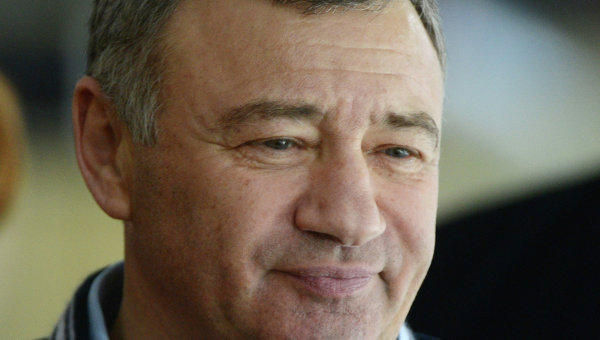MOSCOW, November 30 (RAPSI, Vladimir Yaduta) - A claim lodged by Russian businessman Arkady Rotenberg over EU sanctions against him has been granted in part, the General Court of the European Union said in a press release on Wednesday.
Sanctions were lifted against Rotenberg from July 2014 to March 2015.
However, the court upheld the restrictive measures against businessman in respect of the period from March 15, 2015 to September 15, 2016 and onwards.
The European Council imposed in March 2014 restrictive measures on a number of Russian individuals and businesses following a crisis in Ukraine and situation in the Republic of Crimea.
Sanctions encompassed dozens of Russian companies and over 130 individuals, including officials and businessmen as well as leaders of the self-proclaimed Donetsk and Lugansk republics. Aside from individual sanctions, the EU imposed sector-specific sanctions against Russia that have negatively affected major Russian financial institutions and companies. The sanctions list was extended on a number of occasions.
Rotenberg was added to the EU blacklist on July 30, 2014.
He made an official request with the Council asking for review of the decision.
The Council claimed that Rotenberg was blacklisted because of ties to President Putin and the fact that his businesses had won contracts.
The EU noted in particular that companies controlled by Rotenberg have been awarded important government contracts including those related to the preparations of the Sochi Olympic Games.
The EU alleged as well that the businessman is a major shareholder of Giprotransmost, a company which conducted the feasibility study of the construction of a bridge from Russia to Crimea.
The Council qualified this fact as association with decision-makers that had violated the territorial integrity of Ukraine.
Later, the information about Giprotransmost was omitted. Instead, the Council added two other issues reasoning the extension of restrictive measures against Rotenberg.
The EU claimed that the businessman is the owner of Stroygazmontazh company, the primary contractor in engineering and construction of the bridge linking the Crimean peninsula with the Russian mainland.
Finally, the EU alleged that Rotenberg is the board chairman of Prosvescheniye publishing house that organized a public relations campaign to persuade Crimean children that they are now Russian citizens living in Russia.
Maya Lester QC of Brick Court Chambers who acts on behalf of Mr Rotenberg told RAPSI that the General Court said the original listing was unlawful but declined to lift sanctions against Rotenberg in respect of the period from March 15, 2015 to September 15, 2016 because of these two issues. “In both cases there are no allegations against Mr Rotenberg other than his ownership / chairmanship of those two companies,” she said.
“I do not yet know whether there will be an appeal by either side,” Lester added.
Rotenberg in October 2014 filed a complaint to the ECJ challenging his inclusion on the sanctions list and seeking “an annulment of the Council’s decision, arguing, amongst other grounds, that the measures are disproportionate.” He claimed that the Council had violated his “fundamental rights to property, privacy and the freedom to run a business.”
Several Russian companies including Rosneft, Gazpromneft, Sberbank, VTB Bank, Vnesheconombank also filed complaints over sanctions to the ECJ.



